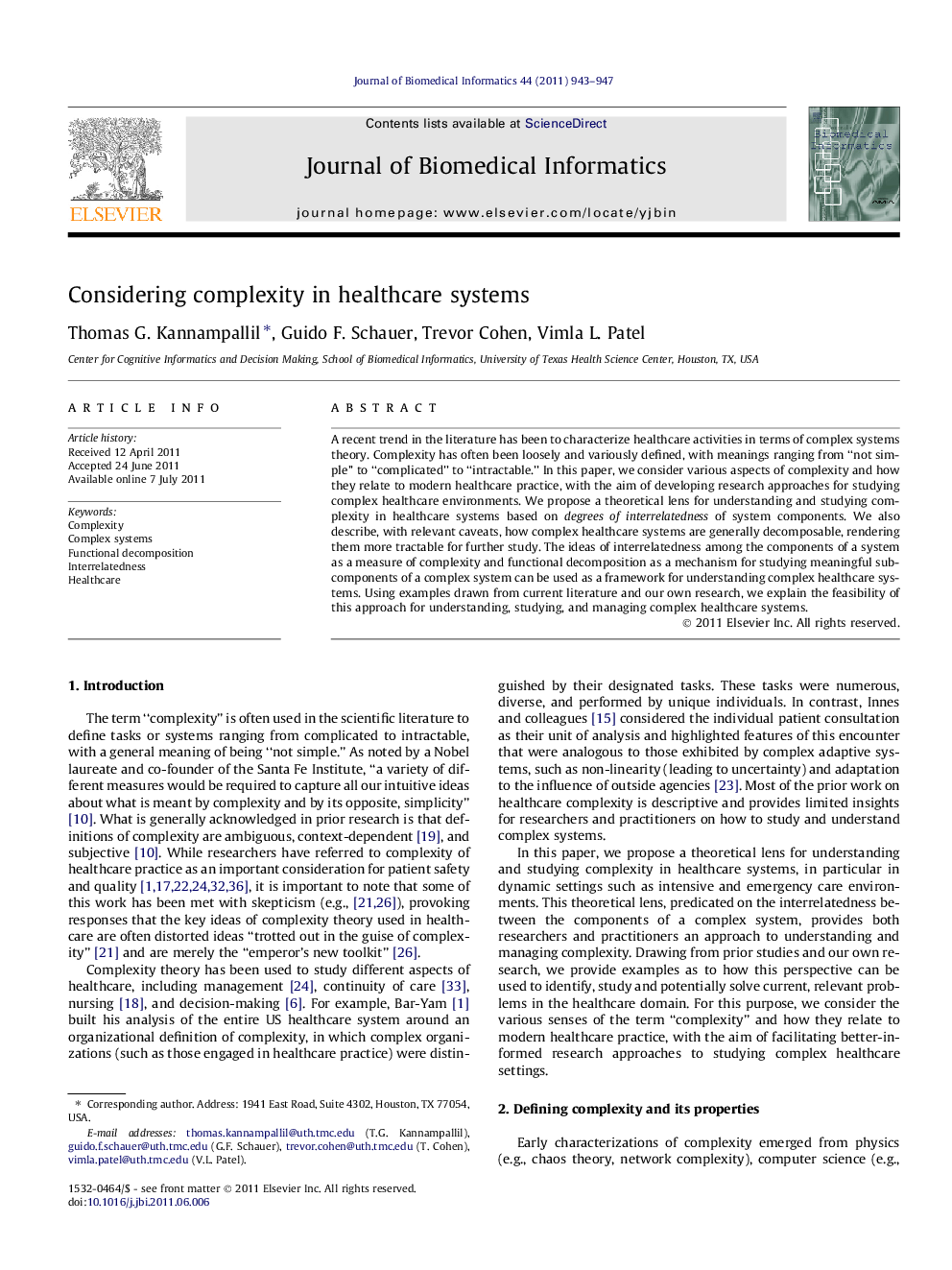| Article ID | Journal | Published Year | Pages | File Type |
|---|---|---|---|---|
| 517722 | Journal of Biomedical Informatics | 2011 | 5 Pages |
A recent trend in the literature has been to characterize healthcare activities in terms of complex systems theory. Complexity has often been loosely and variously defined, with meanings ranging from “not simple” to “complicated” to “intractable.” In this paper, we consider various aspects of complexity and how they relate to modern healthcare practice, with the aim of developing research approaches for studying complex healthcare environments. We propose a theoretical lens for understanding and studying complexity in healthcare systems based on degrees of interrelatedness of system components. We also describe, with relevant caveats, how complex healthcare systems are generally decomposable, rendering them more tractable for further study. The ideas of interrelatedness among the components of a system as a measure of complexity and functional decomposition as a mechanism for studying meaningful subcomponents of a complex system can be used as a framework for understanding complex healthcare systems. Using examples drawn from current literature and our own research, we explain the feasibility of this approach for understanding, studying, and managing complex healthcare systems.
Graphical abstractThis figure summarizes the range of complexity of systems, highlighting four extremes as a combination of the number of components and the interrelatedness among those components.Figure optionsDownload full-size imageDownload as PowerPoint slideHighlights► Theoretical lens for understanding and studying complexity in healthcare systems. ► Complexity was based on degrees of interrelatedness of system components. ► Principles of interrelatedness can be utilized for complex system decomposition.
